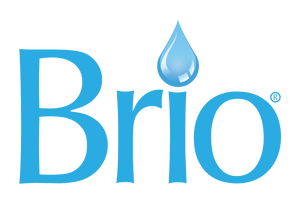Have you noticed that your hair and skin have become dry?
Do your dishes have white spots when they come out of the dishwasher? What about your sinks, tubs, and faucets? Do they have a chalk-like substance on them?
If so, you may be experiencing the effects of hard water — but what does that even mean? What is hard water, and is it an issue?
This guide will help you identify hard water issues so that you can take action.
What Is Hard Water, and Why Care?
Hard water has high concentrations of calcium and magnesium, although other dissolved metals can contribute. While many feel embarrassed by spotty dishes, approximately 85% of the American water supply is hard.
Many households and businesses install water softeners to help eliminate high mineral levels based on the potential effects.

For example, hard water can lower the efficiency of water heaters, clog piping, and reduce equipment lifespan. You might first notice issues with your coffee maker, so people occasionally flush the system or pot with vinegar.
Despite that, hard water isn't necessarily bad for your health.
In some cases, hard water can increase exposure to the minerals your body needs. However, it can also expose you to heavy metals and other contaminants.
Overall, the most significant concern is the physical effects of hard water. When hard water is cloudy and has an odd taste due to higher calcium levels, people often use a softener to ensure clear, tasty water.
Common Problems Caused by Hard Water

Here are some of the most common issues following prolonged exposure to hard water.
- Plumbing issues, including scaling and blockage + an increased risk of leaks.
- Appliance inefficiencies, resulting in reduced lifespans and increased energy consumption.
- Skin and hair concerns, including dry, irritated skin and dull hair.
- Stains on clothes and dishes can cause increased detergent use and lingering white, chalky residue because of the minerals in hard water.
Solutions to Hard Water Problems
So, what can you do to target hard water?
You can get a water softener. That is one simple and effective option.
Water softeners remove sodium ions in a tank of resin beads. This process will not remove impurities from your water, though.

So, a complete home filtration system is the perfect addition to your water softener. This option is especially ideal if your filter system contains activated carbon filters only. While these filters can reduce chlorine and heavy metal exposure, they don’t remove calcium and magnesium.
In contrast, a reverse osmosis system is often a more comprehensive solution. They target hard water issues and make your water taste great. Three-stage whole-house systems are a great option for quality drinking water while reducing hard water build-up.
Related: Which Filters Are Best For Hard Water?
Temporary Solutions to Address Hard Water

Before installing a more permanent solution, here is how you can deal with hard water.
- To clean your appliances, use a vinegar solution. However, be aware that food-safe vinegar can affect some finishes, including those that contain nickel. So, this is just a quick fix and should not be a long-term solution.
- For consumption purposes, boiling hard water is a cheap and quick way to temporarily address the issue.
- Source products that can aid in common issues, such as using washing soda (sodium carbonate) for a more efficient laundry cycle. You can also find cleaning aids designed for hard water.
Brio Has What You Need
Regardless of what you choose as your home’s hard water solution, Brio has what you need. In some cases, people opt for a bottled water cooler, whereas others want a bottleless filtration system. There are even under sink options, which are the most advanced and discrete.
Choose from:
- Whole house filtration systems — select from anti-scale, multi-purpose, heavy metals, etc.
- Undersink filtration systems — there are options for every style and budget.
- Reverse osmosis systems — check out tankless solutions.
Let’s Chat About Your Water
Yes, hard water is common — but that doesn’t mean you need to live with it.
If you’re tired of laundry stains, dishware spots, and the worries surrounding your home’s pipe system, it’s time to invest in a more permanent solution. Choose from a water softener or a more complete filtration system.
When you invest in the right filtration system, you’ll combat the physical effects of hard water and improve the quality of your drinking water. It’s a win-win!

So, start with a water testing kit to see the most pressing issues with your water supply. When you get your results, you’ll see what you’ve been drinking—you may be surprised by what you discover.




